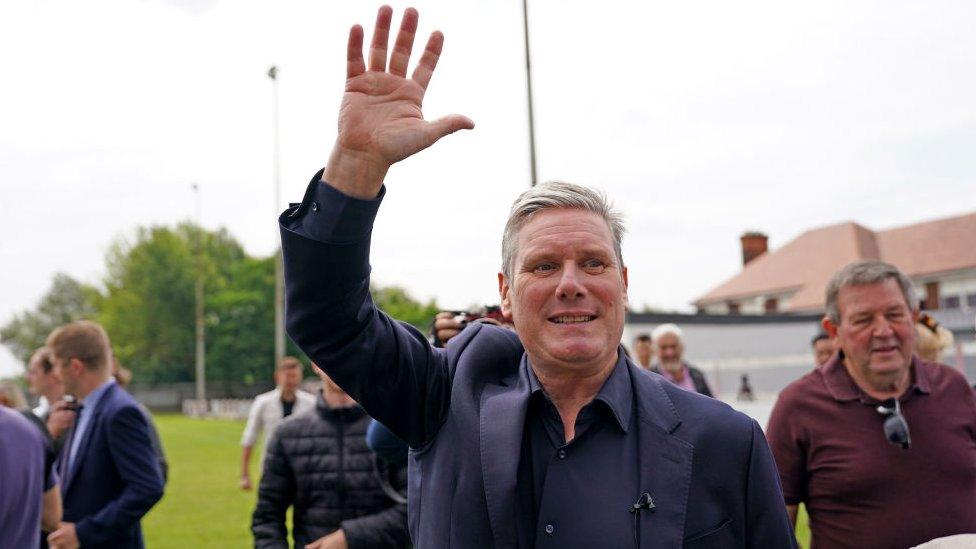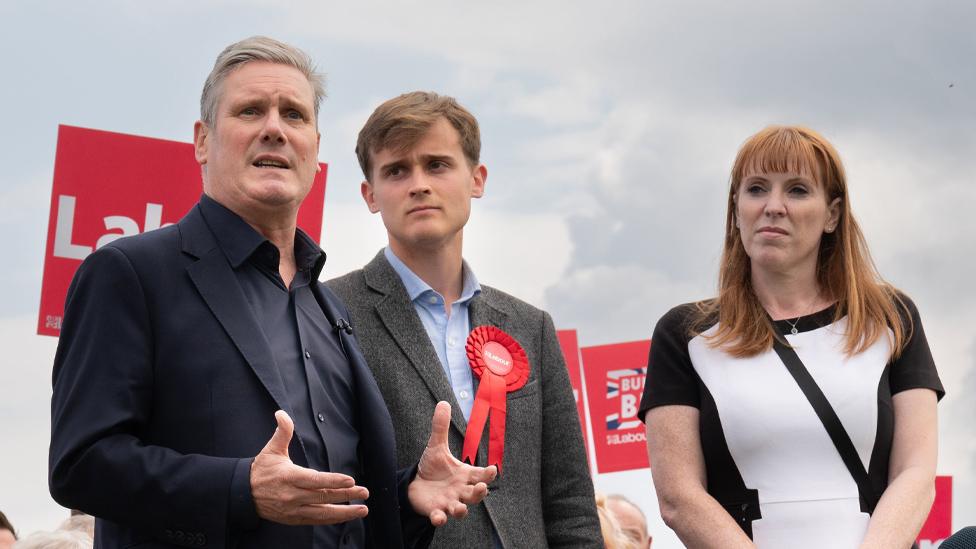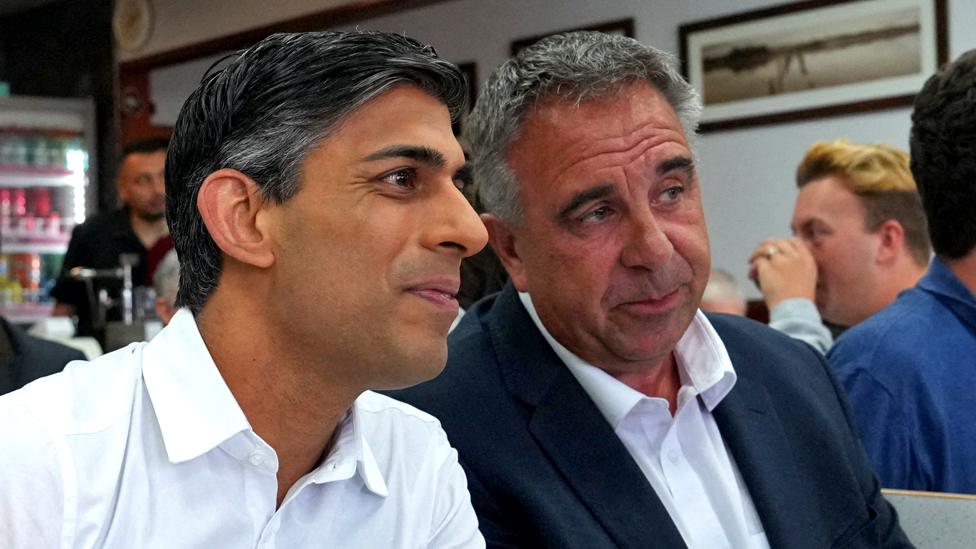Labour leadership sees off demand for new spending commitments
- Published

Labour's leadership says it has agreed an ambitious programme for government without a need for new spending commitments.
Labour's Policy Forum in Nottingham brought together representatives of the shadow cabinet, rank and file party and Labour-supporting trade unions.
It is part of the process of drawing up a manifesto for government, although not the final word.
Some unions had been pressing for more generous pledges.
They were looking for commitments on early years education, free school meals for all primary-age children, and to lift the two-child limit on some benefit payments.
Often in such meetings, compromises are reached behind closed doors.
But Labour leadership sources say they stood firm over the three days of talks in opposing any policy proposals that would have led to new spending commitments.
The sources insist they had been determined not to give unnecessary ammunition to their political opponents.
A spokesman said: "This weekend is proof that Keir Starmer has changed the Labour Party, and is ready to change the country in government built on the rock of economic responsibility."
One union, USDAW, which saw its hopes of changes to the benefits system dashed, nonetheless described the policy discussions as constructive.
The GMB union said that "after several days of negotiations", it had secured an "historic commitment" to strengthening equal pay rights.
The party's largest union funder, Unite, was far less pleased.
In a statement, the union accused the Labour leadership of watering down existing commitments' to workers' rights and ending zero-hours contracts.
It said: "As the general election draws nearer Keir Starmer has to prove Labour will deliver for workers and we need clear policies on this."
It described the policy-making process as "chaotic."
The left-wing group Momentum criticised what it called Sir Keir Starmer's "fiscal conservatism".
A spokesman said: "This has put paid to any hope of the bold, transformative policies we need."
He argued that a higher minimum wage, and free school meals, would have been popular policies but had been rejected.
Further discussions will take place with the unions before a final election manifesto is agreed.
But the party leadership has been focussed on emphasising one message above all for the wider electorate - that it would not promise what it does not think it can deliver in government.
Related topics
- Published21 July 2023

- Published21 July 2023
